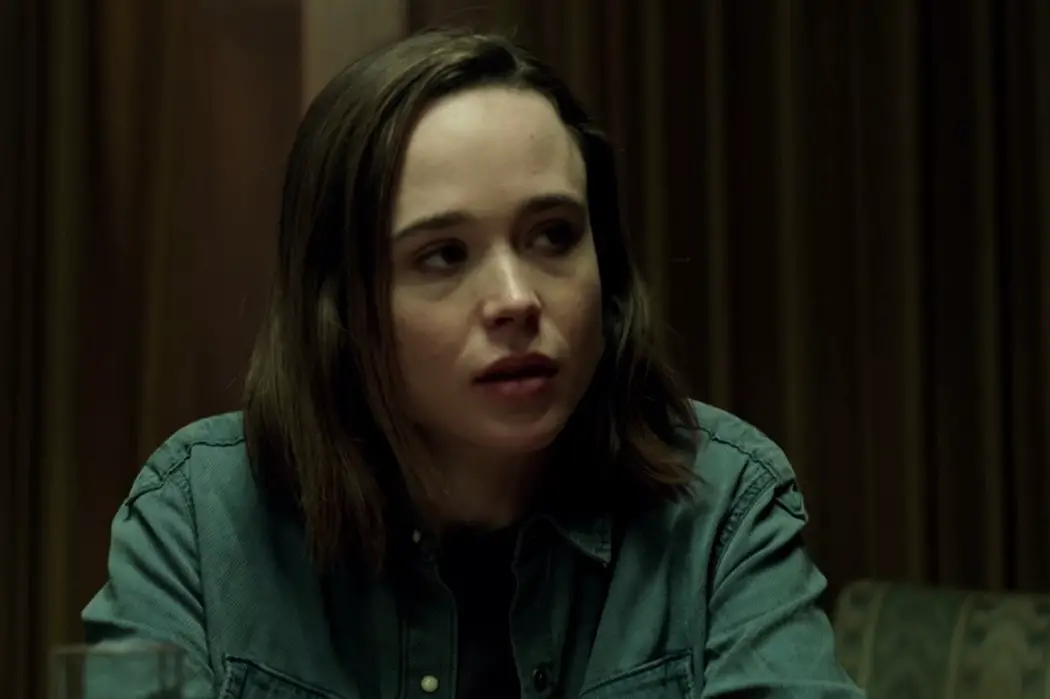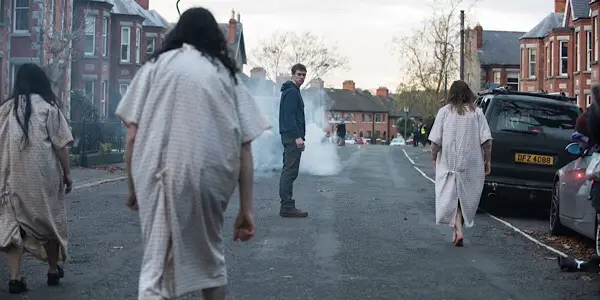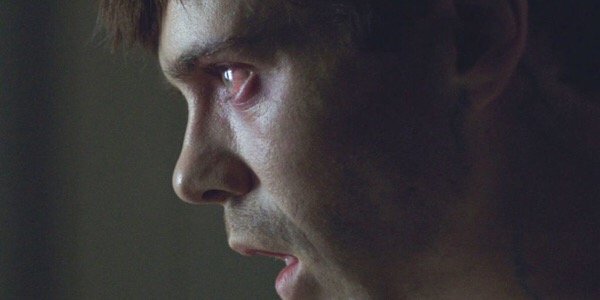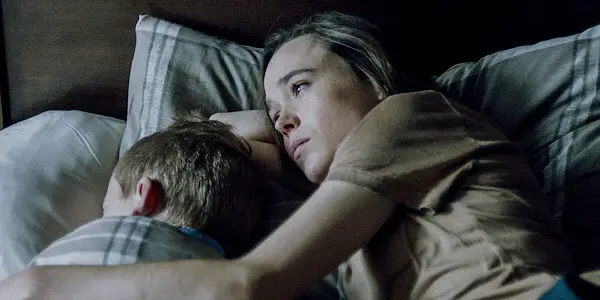Interview With David Freyne, Writer/Director Of THE CURED

Kristy Strouse is the Owner/Editor in Chief of Film Inquiry,…
Zombies are hardly a new concept, but The Cured life is injected into the limp subgenre. This film concentrates on the human reactions like guilt, fear, and forgiveness. It is a stunning debut feature from writer/director David Freyne that solidifies his presence in the world of film.
After an outbreak transforms inhabitants into cannibals, a cure is created, effectively treating 75% of the infected. Those cured remember what they have done, terrorized by the memory of each disturbing act. The Cured is about what comes after an outbreak, not only to the cured, but to the fractured society left reeling after their loss. Can they find a way to be whole again? How does someone go back to their life after being part of the living dead?
Dramatic, heart-wrenching, while still managing to be terrifying, The Cured is a must see.
I was able to speak with director David Freyne about the powerful realities that inspired his film, how he got his dream cast, and what’s next!

Kristy Strouse for Film Inquiry: Hello David, thanks for speaking with me today. I really loved the film!
David Freyne: Thank you, that’s great! Thanks for chatting with me.
Let me get right into it, as writer and director this was really your vision. You had made the short film, The First Wave, previously. This is sort of an extended part of that story. Can you talk about your inspirations for this very complex idea?
David Freyne: Yeah! Of course. Well, I love the genre. I love zombie films. I have from the first time I saw Dawn of the Dead, the original, then I went back to see Night of the Living Dead. I always thought it was a great way of telling this sort of social and political story in a really different way. A lot of these films had explored or discussed the idea of a cure, but what if there was one, what would happen next? One of my favorite books was I Am Legend by Richard Matheson, which is more about a guy trying to find a cure. The idea was what would happen if there was a cure, and the cured remembered what they did? So that kind of came to me around 2011, and sort of just grew from there. The idea of being haunted with the memory of what you did, seen through trapped eyes… I just thought was so horrific and horrendous. That’s where Senan came from, and the world sort of unspooled from that. But when I was writing it, it was when Ireland was gripped by this horrible recession which affected me and my family. People were losing their jobs and were being blamed for things that were out of their control, and the banks were closing.
We had the rise of these really horrific populist politicians in Europe. That’s why I created Tom’s character, he’s basically a populist politician who is feeding on the anger and exploiting it for his own end. That kind of all fed into the writing process. Obviously, we didn’t know what would happen, we didn’t know Trump would happen, but those things are symptoms of what was happening then. The same idea of people being used as scapegoats and being dehumanized, being blamed for all the fighting. That was sort of the perfect storm that started it back in the day.
Great. Of course, those who are cured are not at fault for their actions, they are honestly even more victims than anyone else in the story.
David Freyne: Yeah, totally.

They’re almost like parolees, having to check in. Sort of like a rehabilitation after a crime. There are obviously a lot of parallels to society throughout the film. I know you touched on this already, but is there anything else you can say about that sort of response? The discrimination, etc.
David Freyne: Yeah, and you are right because the cured are very much the victims. They are not responsible. I think what really struck me is how at the time, and now unfortunately it’s getting worse, is how immigrants and refugees, asylum seekers, were being so dehumanized. They were being treated like a contagion that could be just eradicated. And they are being blamed for everything that was wrong. So, the idea that these people who were being treated like an infection really struck me. I found it to be horrendous and heartbreaking. That fed into it and it became a big inspiration for the piece. And also, it was about how we are letting fear rule our politics and our lives. We’re letting that kind of overrule everything else, any sort of compassion. I think that’s how society can be backwards. That’s a big fear in this film, how society is in recovery, but it’s actually in reverse, letting fear and anger win.
I think that’s why the movie works so well, and why the themes in it are so powerful. It transcends the normal zombie genre. Everyone in the film is stellar. Did you have the cast in mind?
David Freyne: I got ridiculously lucky for a first feature. It is a dream cast. I actually did have everyone in mind for this. Sam Keeley is a growing up and comer, but he’s very well known in Ireland. I had seen a lot of his varied work, and just loved his presence and vulnerability. I thought he would be perfect as Senan, so we approached him. Tom Vaughan-Lawlor who plays Conor, he’s a legend in Ireland, and he’s like a genius. He brings such a complexity to an antagonist, so again, we got so lucky with him. And with Ellen… I always wanted her, I thought she’d be amazing. I loved the idea that with Abbie, she’s an American stuck in Ireland because her son is Irish, and not able to leave. And that was so heartbreaking. I always thought she’d be great at that, and I had never seen her play a mother before.
So, we decided to approach her, never assuming it would happen. It was like a silly pipe dream that we decided to get out of the way. We approached a few times and heard nothing back, assuming we were going in a junk folder. And then we decided to do one more approach to her manager and I wrote a sort of, very fawning letter, as to how wonderful I thought she would be, and how much I loved her work. We finally got the script to her and she really responded to it and loved the character. She said she would do whatever she could to help us make it, and she stuck to her word. She was amazing. It was really a dream cast, and I’m still pinching myself. [Laughs] As good as they all are what was amazing was their chemistry together and how they worked together. They really gave the film its core, it’s heart. I was very lucky. A lot of luck.
Well I think it was a bit more than that! It truly is an impressive first feature.
David Freyne: Thank you!

The ending, while we have sort of a resolution for Senan’s character, kind of redeeming himself, there is still plenty left unfinished. Do you have plans for a sequel?
David Freyne: Ohh, let’s see how this goes first! [Laughs] No, but you are right, the ending is about Senan’s redemption. I don’t want to go into spoilers, but that does happen. Certainly, it’s somewhat open-ended. It’s a sad movie in many ways, and I think it ends with a certain sense of hope. I’m very happy with that, with the story that we told. Of course, if the opportunity arose there is a story there and I would be very excited to continue that. I think this does have a very lovely arc and I’m really happy with that. This is a big world, and I think there are lots of characters and stories that never made the film. If the opportunity came, in this or another medium, I’d be more than excited to explore that. I’ve even thought that you could do a sequel as a graphic novel or a TV show. There are so many ways you could go with it. For now, I’m just enjoying the feature being out there.
I don’t blame you there, you deserve it! I think a graphic novel could be an interesting way to go.
David Freyne: Yeah, I love graphic novels! I grew up with comics. It’s always nice to explore something in a different way. Because I think every media has a different attribute and merit. It’s good to see how you can explore a story through a diverse medium. I think it might be interesting.
Definitely. I know you said that you are sort of taking this in, and enjoying it, but do you have anything you are working on?
David Freyne: I am yeah. I think the only thing scarier than the first feature is your sophomore effort. [Laughs] I’m definitely working. I’ve written a script that I’m very excited about, which is a slightly different genre. It’s in the fantasy/horror realm, and I’m also writing a comedy/drama based in Ireland. I’m excited about both of those things, and some other stuff I’m reading. I’m just kind of trying to… choose wisely. I think the big trick is to not repeat yourself, so it probably won’t be zombies. I’m excited to get the next one going.
Well I’m excited see those when they’re finished, and I’ll definitely be following your career! Congratulations again on The Cured! I really appreciate you talking to me today.
David Freyne: Thank you so much for your time!
We want to thank David Freyne for taking the time to share with us.
The Cured was released February 23rd in the US and is currently on digital streaming platforms. To read our review click here, and to check out interview with actor Sam Keeley, click here.
Does content like this matter to you?
Become a Member and support film journalism. Unlock access to all of Film Inquiry`s great articles. Join a community of like-minded readers who are passionate about cinema - get access to our private members Network, give back to independent filmmakers, and more.
Kristy Strouse is the Owner/Editor in Chief of Film Inquiry, writer, podcaster, and all around film and TV fanatic. She's also VP of Genomic Operations at Katch Data and is a member of The Online Association of Female Film Critics and The Hollywood Creative Alliance. She also has a horror website: Wonderfully Weird & Horrifying.













